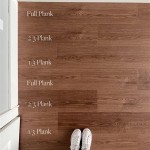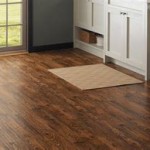Preparing Your Home with the Right Tile Flooring Cost
Upgrading your home's flooring with tiles is an excellent way to enhance its aesthetics and functionality. Whether you're considering ceramic, porcelain, or natural stone tiles, understanding the cost involved is crucial for planning your renovation. Here's a comprehensive guide to help you navigate the tile flooring cost and make informed decisions for your project.
Factors Affecting Tile Flooring Cost
The cost of tile flooring varies depending on several factors, including:
- Type of tile: Ceramic and porcelain tiles tend to be more affordable than natural stone tiles, such as marble or limestone.
- Size and shape: Larger tiles generally cost more than smaller ones, and irregular shapes are often more expensive than standard square or rectangular tiles.
- Glaze or finish: Glazed tiles have a protective coating that adds to their cost, while unglazed tiles are typically less expensive.
- Installation method: Professional installation can increase the overall cost, but it ensures proper placement and durability.
Estimated Tile Flooring Cost per Square Foot
To provide a general estimate, here's a range of tile flooring cost per square foot:
- Ceramic tile: $2-$8
- Porcelain tile: $3-$10
- Natural stone tile: $5-$20+
Note that these are approximate costs that may vary based on specific materials, local availability, and labor rates.
Calculating Tile Flooring Cost
To calculate the approximate cost of tile flooring for your home, follow these steps:
- Measure the area: Determine the square footage of the space to be tiled.
- Choose the tile: Select the type, size, and style of tile you want.
- Get estimates: Contact local tile suppliers and installers for quotes on materials and labor.
- Add installation costs: Include the cost of professional installation, which typically ranges from $3-$10 per square foot.
Additional Costs to Consider
In addition to the tile flooring cost, there may be additional expenses to consider during your project:
- Subfloor preparation: If your existing subfloor requires leveling or repairs, you may need to factor in extra costs.
- Grout and mortar: The materials used to fill in the spaces between tiles impact the overall cost.
- Sealers and finishes: To protect and enhance the appearance of your tile flooring, you may need to apply sealers or protective finishes.
Tips for Saving on Tile Flooring Cost
Here are some tips to help you save money on your tile flooring project:
- Consider ceramic or porcelain tiles: These types of tiles are generally more affordable than natural stone.
- Choose smaller tiles: Smaller tiles are typically less expensive than larger ones.
- Get quotes from multiple suppliers: Compare prices from different vendors to find the best deal.
- Negotiate installation costs: Don't be afraid to negotiate with installers for a competitive price.
- Do some of the work yourself: If you're handy, you can save on installation costs by preparing the subfloor and grouting the tiles yourself.
By understanding the cost factors, calculating the estimated costs, and considering additional expenses and saving tips, you can prepare your home for stylish and durable tile flooring within your budget.

What Is The Average Cost To Install Tile Floors Rubi Blog Usa

2024 Ceramic Tile Installation Cost A Complete Guide

Tile Vs Wood Flooring Major Differences Pros Cons And Costs Forbes Home

Average Cost To Install Tile Floor

A Complete Guide To Ceramic Tile Installation Costs In 2024 Forbes Home

What Is The Average Cost To Install Tile Floors Rubi Blog Usa

2024 Cost To Install Tile Flooring

Tile Vs Wood Flooring Which Is The Better Choice Stone Center

2024 Cost To Install Tile Flooring

Tile Flooring Pros And Cons To Consider Forbes Home
See Also







